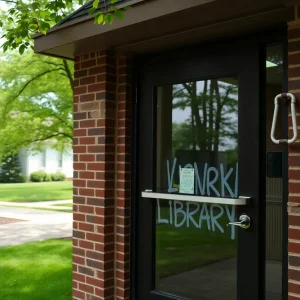Revolving Door of Crime: Violent Offenders Free on Low Bonds
In a concerning new trend, Middle Tennessee is grappling with an alarming situation: a revolving door of crime with violent offenders being released on surprisingly low bonds. Heartbreaking stories are mounting and the community, terrified and outraged, is calling for action.
Violent Criminals Walking Free
In recent strings of shocking incidents, violent criminals who many say should not have been free to inflict more pain, roam on the streets. Cases like that of 19-year-old Adrian Cameron Jr are causing despair. Accused of robbing and killing a Californian rapper outside a Nashville music studio, Cameron leapt onto Nashville’s most wanted list – and he was already out on bond for another murder committed in 2021.
A system that allowed Cameron to enjoy freedom by putting down just 10%, or $10,000 of a $100,000 bond and don an ankle bracelet, which he cut off before his latest violent act, is under scrutiny. For many, it is as plain as the gang tattoo on Cameron’s neck – he was too dangerous to be let out.
The Tipping Point
Outrage intensified when on Easter Sunday, a man shot one person dead and injured six others at a brunch at a charming little Salemtown restaurant. The alleged shooter, Anton Rucker, was freshly out on a $50,000 bond for a road rage incident in Rutherford County. Five minutes of recounting his criminal record, twenty-one pages strong, reveal that he’s a frequent offender. The upshot was that Rucker was back on the streets for a mere $5,000.
“If whatever your normal is your normal, you are going to continue it until you have an intervention, even if you’ve been arrested for a crime”, said Verna Wyatt from Tennessee Voices for Victims, shedding light on the disturbing pattern.
The Role of Law and Judiciary
The right to bail is enshrined in the Tennessee constitution which requires all prisoners to be bailable by sufficient sureties, barring capital offenses. Constitutional considerations also include the ability to pay bond, allowing judges to reduce or eliminate bonds if the accused is impoverished.
Although these provisions are designed to protect the financial vulnerability of the individuals, questions are being raised about the balance between poverty and public safety. Public safety is, after all, also a constitutional bond consideration. However, a worrying question is – are these violent criminals truly poor, or is the system enabling them to come back out onto the streets?
Plugging the Loopholes – A Call for Legislative Change
William Lamberth, Majority Leader in the Tennessee House of Representatives, is spearheading an effort to shift the focus from financial considerations to community safety. New laws are being proposed to amend the existing rules and restrictions connected to bond payments. The goal is to make the state safer from violent criminals by plugging loopholes that allow dangerous offenders to keep walking freely.
An entire community is thus left to grapple with a poorly functioning legal loophole. While the legal and constitutional intricacies can be argued and interpreted, the impact of violent offenders being released on low bonds is being felt by innocent victims. A proactive approach in modifying these laws is essential to ensure safety and restore public faith in the system.








